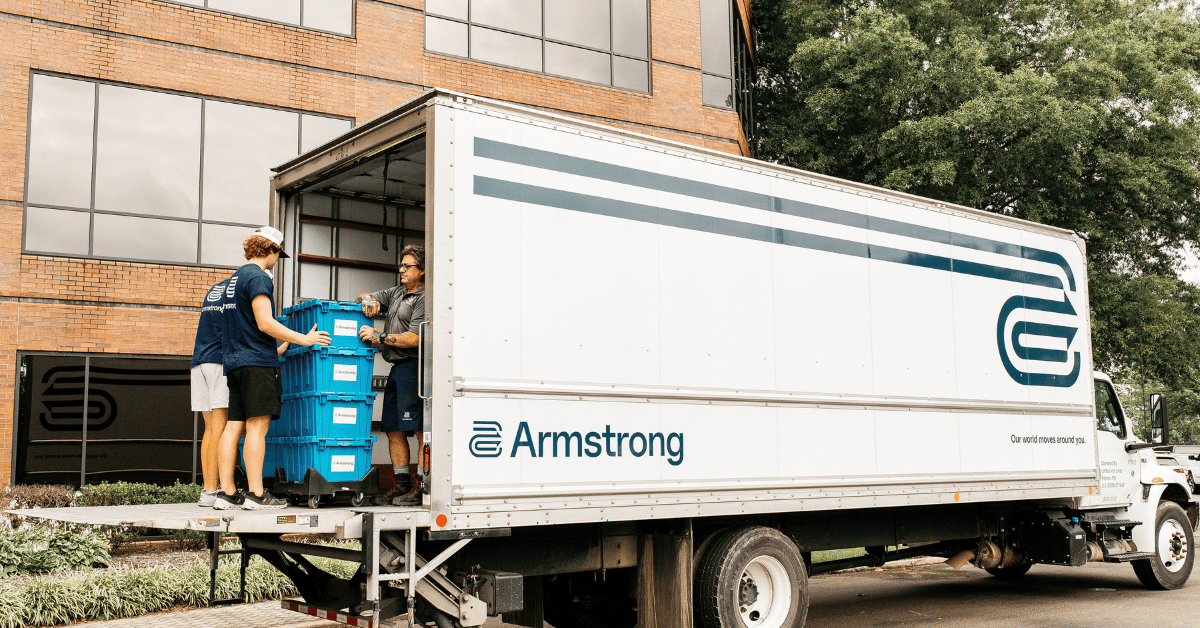Key Factors to Consider When Relocating Your Business

Relocating is a major decision for many businesses, often driven by the need for growth, expansion or operational changes. Whether you’re a new startup looking for a more supportive environment or an established company aiming for strategic growth, relocation offers exciting benefits and possibilities. But it’s important to understand the challenges that come with it.
Relocating requires careful planning, thoughtful consideration and adaptability. From finding the perfect spot and setting up new facilities to making sure your employees transition smoothly, every step needs attention. This guide will help businesses evaluate factors crucial for making informed decisions and ensuring a smooth relocation, helping you make smart choices and increase your chances of success.
1. Financial Considerations
Relocating a business inevitably comes with a financial impact. Understanding the key elements contributing to these costs is essential for making informed decisions and ensuring a smooth transition.
Cost of Relocation
The most obvious financial aspect of relocating is the direct costs involved in physically moving your business. These include hiring professional movers, transporting equipment and inventory and any lease termination fees at your current location. You’ll also need to account for the costs of securing new premises, whether through leasing or purchasing, overhead costs and any necessary renovations.
It’s important to also consider hidden costs that can impact your bottom line. Employee downtime during the move can lead to lost productivity and disruptions to your operations. Additionally, factor in expenses like printing new promotional materials with your new address, updating your website and online listings and investing in signage for your new location.
Cost of Living
The cost of living in your new area also plays a significant role in your financial planning. A higher cost of living may necessitate adjusting employee salaries and benefits to remain competitive. It’s essential to research local wage standards and local market conditions and factor these into your budget.
Potential for Cost Savings
Relocating a business could also bring opportunities for cost savings. Lower operating costs, reduced taxes or access to government incentives could positively impact your bottom line. Explore these potential benefits to make an informed decision.
Tax Implications
Before making any final decisions, thorough research into the tax implications of your relocation is crucial. Tax regulations can vary significantly between locations, and unexpected tax burdens can strain your finances.
Understand the tax environment in your prospective location, including local tax laws and regulations. Consider factors such as property taxes, sales taxes and any potential tax incentives offered to businesses relocating to the area.
2. Logistical Factors
Beyond financial aspects, logistical factors play a crucial role in determining the success of your relocation. Ensuring smooth business operations and efficient supply chain management hinges on careful consideration of infrastructure, transportation and proximity to key partners.
Infrastructure Quality
The quality of local infrastructure is crucial for smooth business operations. Check roads, internet and utilities. Ensure essential services like banks and healthcare are available. Most importantly, confirm the infrastructure supports your specific business needs. If your operations rely heavily on high-speed internet or uninterrupted power supply, confirm that the new location can meet those needs.
Access to Transportation
Good transportation is key for moving goods and people. Check how close your new location is to major highways, ports or airports. Consider how transportation costs and logistics will affect your business. Will shipping be more expensive or take longer? Make sure the new location has reliable transportation to keep your supply chain running smoothly.
Proximity to Suppliers
Supplier location matters for your supply chain. Assess how close your new spot is to key suppliers and how the move might affect logistics. Being near suppliers can mean lower transport costs, faster deliveries and better communication. Factor in these logistics to ensure your relocation helps your business run efficiently.
3. Human Resources and Workforce
The heart of any successful business lies in its workforce. When relocating, it’s imperative to carefully consider the human resources implications, ensuring access to skilled labor and providing adequate support to employees during the transition.
Availability of Skilled Labor
Assess the talent pool in your new area. Does the local workforce have the skills you need? Research the labor market, workforce considerations, education levels, industry-specific skills and wages.
Decide if it’s better to relocate your current employees or hire new ones. Relocating keeps your team together but can be expensive and some might leave. Hiring locally brings in fresh talent but may need more training.
Employee Relocation Support
If you decide to relocate existing employees, it’s crucial to offer robust support to ease their transition. Consider offering relocation packages that cover moving expenses, temporary housing assistance or even assistance with finding schools for employees’ children. Providing comprehensive support demonstrates your commitment to your employees’ well-being and can significantly improve their relocation experience.
Remember, relocation affects personal lives too. Open communication is essential. Address concerns and provide resources to ease the transition for everyone.
4. Market and Growth Potential
Relocation offers the potential to tap into new markets and expand your customer base. However, it’s essential to conduct thorough market research to ensure that the new location aligns with your business goals and growth aspirations.
Market Demographics
Analyze the new market trends, demographics, your ideal customers and the competition to ensure your business is well-suited for the area. Assess the growth potential by determining if there’s demand for your products or services and if any untapped opportunities exist. To ensure success, stay ahead of the curve by considering how new technologies or changing consumer behaviors might impact your business. Adapting to these factors will position you for success in the new market.
Proximity to Target Customers
Consider how close your new location is to your target customers. Being closer can improve communication, customer loyalty response times, and customer service. Think about how the move might affect your existing customers and sales. Will it disrupt your current base or open doors for expansion? Remember, being close to customers allows for face-to-face interactions and community engagement, fostering stronger relationships and loyalty.
5. Business Operations in a New Location
Relocating your business involves more than just moving to a new space. It’s essential to consider how the move will impact your day-to-day operations and to plan meticulously for a seamless transition.
Impact on Business Operations
Consider the move’s impact on every aspect of your business. Plan for potential disruptions, like downtime and how to handle customers during the move. By addressing these challenges proactively, you can achieve minimal disruption and maintain business continuity.
Ensure that the new location aligns with your overall business goals and objectives. Does the new space support your growth plans? Is it conducive to your company culture and values? The right location sets you up for success.
Relocation Timeline
Establishing a clear relocation timeline is crucial for staying organized and on track. Break down the relocation process into manageable stages, each with specific tasks and deadlines.
Assign responsibilities and hold team members accountable for completing their tasks on time. Regular communication and progress updates are essential for managing expectations and maintaining transparency.
6. Quality of Life and Environment
Beyond the logistical and operational considerations, the quality of life and environment in your new location significantly impact your employees’ well-being and, consequently, their productivity and overall job satisfaction.
Safety and Security
Thoroughly research the safety and security of any potential location. Look into crime rates, the presence of law enforcement and how quickly emergency services respond. Remember, safety and security impact both your business operations and your employees’ well-being. A safe environment fosters peace of mind, allowing everyone to focus on their work without unnecessary worry.
Make sure the new location meets your company’s safety standards. This might mean implementing additional security measures at your new premises or providing safety training for your employees.
Healthcare Facilities
Access to quality healthcare is vital for your employees’ well-being. When considering a new location, evaluate the availability and quality of healthcare facilities. Are there hospitals, clinics and specialists readily available to meet the diverse needs of your workforce?
Remember, easy access to quality healthcare contributes to a healthier workforce. This can lead to reduced absenteeism and increased productivity, positively impacting your business operations.
Practical Considerations for a Business Relocation
While understanding the broader implications of relocation is crucial, practical planning is equally important for a seamless transition. Let’s delve into some actionable steps to ensure your move is as efficient and stress-free as possible.
- Budget: The first step in any successful relocation is establishing a realistic budget. Carefully estimate all potential costs, including both direct expenses like moving and lease termination fees, and indirect expenses like employee downtime and marketing updates. It’s also wise to set aside an emergency fund to cover any unforeseen operational expenses that may arise during the process.
- Location: The choice of location can significantly impact your business’s success. Consider factors like proximity to your target market, local culture, accessibility for employees and clients and the overall business environment in the area. Research potential locations thoroughly and weigh the pros and cons of each before making a final decision.
- Space: Before committing to a move, analyze your current space. Is it possible to reorganize or optimize your existing layout to better meet your needs? If not, carefully plan your new space, ensuring it provides adequate room for your current operations and future growth.
- Inventory: If your business involves physical inventory, consider streamlining it before the move. Sell off any excess or outdated stock to reduce transportation and storage costs.
- Timeline: Create a detailed relocation calendar with specific tasks and deadlines. This will help you stay organized and ensure a smooth transition. Assign responsibilities to team members and hold regular progress meetings to stay on track.
- Furnishings: Evaluate your existing furnishings and determine if they’ll fit in the new space and align with your brand image. If necessary, consider liquidating unsuitable furniture and budget for replacements or upgrades to create a functional and welcoming environment in your new location.
Remember, every relocation is unique. By carefully considering these practical aspects and tailoring your approach to your specific business needs, you can increase your chances of a successful and stress-free relocation.
Your Roadmap to a Seamless Transition
Relocating a business is a multifaceted endeavor that demands meticulous planning and a comprehensive understanding of the myriad factors at play. From financial considerations and logistical challenges to human resources implications, market dynamics and quality of life assessments, each element contributes to the overall success of your relocation.
A successful business relocation hinges on thorough research, careful evaluation and proactive decision-making. By gaining a deep understanding of your new location and its potential impact on your business operations, you can mitigate risks, seize opportunities and ensure a smooth transition.
By considering the essential key factors outlined in this guide, businesses can navigate the complexities of relocation with confidence. Remember, Armstrong is your trusted partner throughout this process. Our expertise streamlines the move, minimizes disruptions and ensures a successful transition to your new base of operations. Ready to plan your move? Contact us today for a free quote and experience a seamless relocation.


